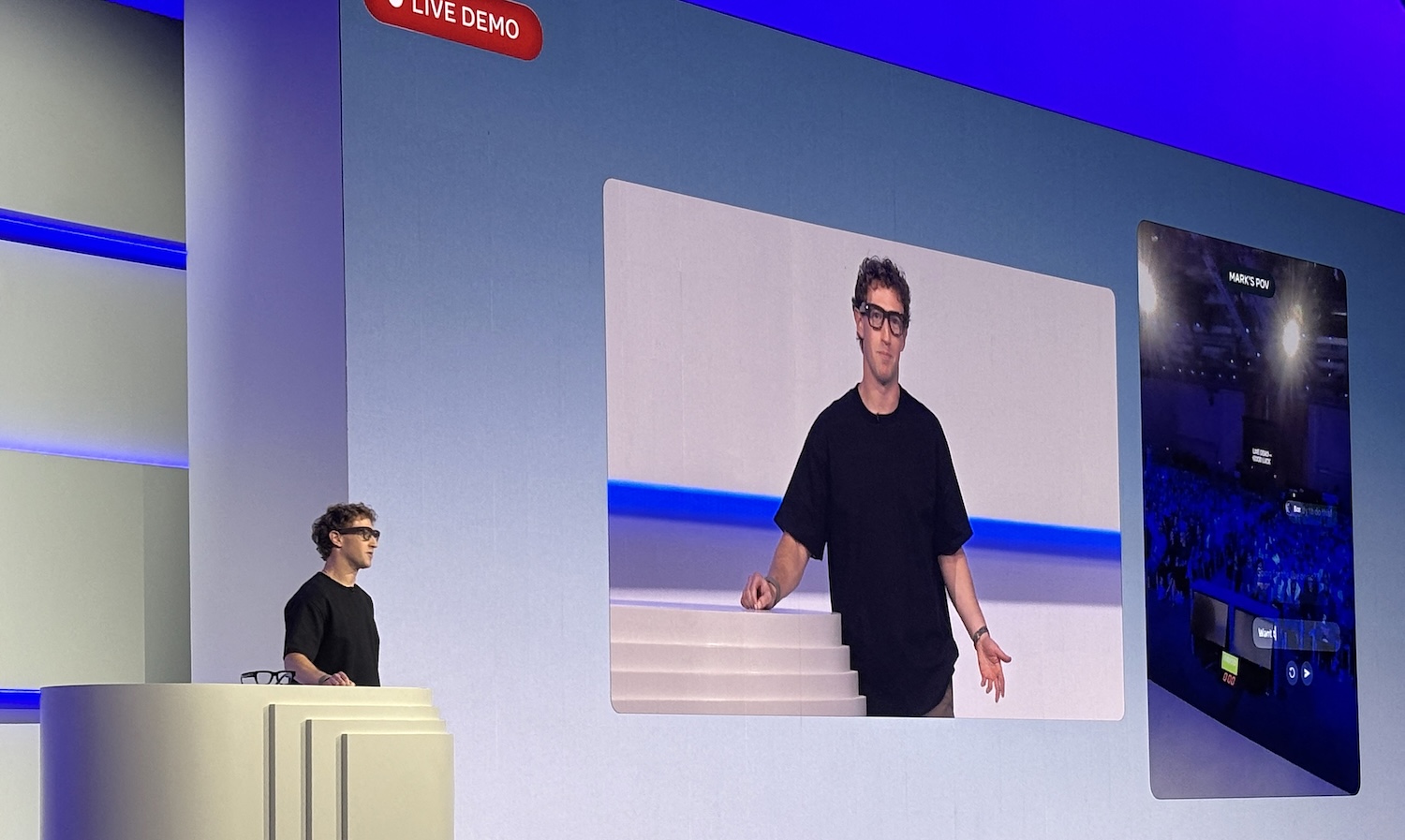"Um ... there we go ... uh-oh," said Meta CEO Mark Zuckerberg on stage as he attempted to answer a video call, through a combination of movements between a wristband and a pair of glasses. "Well, I ... let's see what happened there ... that's too bad," he continued, shortly before cutting short the live demo. The video call went unanswered.
This took place at Wednesday's Meta Connect event, where Meta unveiled several new AI-enhanced wearables and boasted that these would soon be "empowering people with new abilities." Those abilities will include being able to answer text messages and look up information online, activities you have surely been unable to do before now and will soon find will change your life in profound ways once you are able to use the power of wearable AI. Imagine: Soon you will be able to listen to music, while walking. The demo began with Zuckerberg explaining that the keyboard interface had been replaced by a "neural band" worn on the wrist that allows users to twiddle through menus by twitching their fingers, demonstrated by a disembodied hand moving like a dreaming dog. This constitutes "the ability to send signals from your brain."
At one point, Zuckerberg attempted to answer a video call and it didn't work. This was not the only hiccup on the day. Earlier, YouTube chef guy Jack Mancuso took part in a demo intending to show off the functionality of the glasses' built-in AI functionality by trying to have it "help" him cook a Korean steak sauce. "What do I do first?" Mancuso asked, twice, after being met with stony silence. The robot hallucinated an already-made steak sauce, replying, "It looks like you've combined the base ingredients." The nervously grinning Mancuso repeated this dance a few more times, surrounded by untouched ingredients.
That this is embarrassing is obvious, less because the AI assistance that is the entire raison d'etre for this technology is non-functional, more because it solves a problem that doesn't exist—for anybody but Meta. It feels good to laugh at Mark Zuckerberg for the clunkiness of his products and his uncomfortable, put-upon right-signaling aesthetic, but people like this stuff: Meta has sold more than two million smart-glasses units and currently dominates the market. That such a market exists feels bad, but Meta, like every other "Magnificent Seven" tech company, needs to prop up its stock price by creating applications for AI, and so will continue pushing these things no matter how stupid they look, on-stage or off. Maybe you are reading this story on your smart glasses; I don't know. If so, please consider upgrading your Defector subscription.
The most revealing thing said on stage during the clunky demo was the excuse offered by both Zuckerberg and Mancuso in the face of the smart glasses' shaky operability. They each blamed the Wi-Fi in the building, which I found to be compelling, as it reveals a critical and I think understated aspect of the AI enshittification of everything in general, and the theory of wearables in particular. All this supposedly groundbreaking new vaporware technology set to radically reshape the way we interact with the world is reliant on stuff that exists in the world, and has harder limits than these tech companies care to admit.
You cannot use your Meta glasses to read the Wikipedia article on the Chinese Civil War—or, more likely, have a chatbot mendaciously summarize it for you and confidently claim that the Kuomintang rules mainland China—without leveraging the power grid, using terrestrial internet, or walking around on public roads. This stuff is not made for the world as it exists. The broader vision on offer from Meta is of a society defined by seamlessly integrated interaction with AI, facilitated by wearables like smart glasses, yet it can't be brought about by smart glasses alone. It requires an entire infrastructure that doesn't yet exist, though with the unceasing construction of gigantic, poisonous data centers, the industry is trying to bring it about. The ambition of Meta and its cohort is less to fit their products and services in to the world as it exists than make one that does (there's a blueprint here with cars). In other words, if they have their way, it won't particularly matter whether Meta's AI can competently guide you through making a Korean steak sauce; there won't be any other way to do it.






